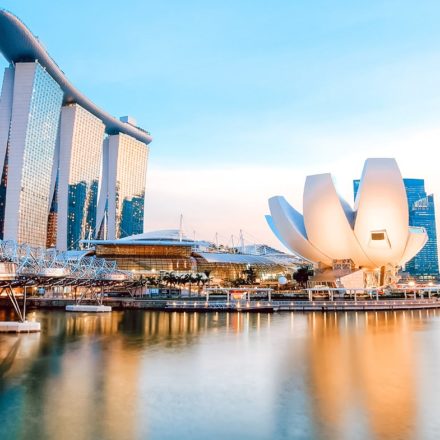In a dramatic development, the Supreme Court of India has upheld the validity and enforceability of a SIAC emergency arbitrator award in India and not just any emergency arbitrator award but an emergency arbitrator award in favour of the world’s largest on-line retailer Amazon and against one of India’s biggest retailers, Future Retail Limited. Further the orders of the emergency arbitrator stopped a US$3.4 billion asset sale of Future Retail Limited to the Reliance Industries group.
The 6 August 2021 Supreme Court judgment has wide ramifications, ruling that awards of emergency arbitrators in arbitrations seated in India are interim measures issued by arbitral tribunals under the Indian Arbitration and Conciliation Act 1996 (“Arbitration Act”), and can be enforced by the Indian High Court as orders of the Court. Also the Supreme Court held that the High Court’s decision on enforcement of an emergency arbitrator award is not subject to appeal. The judgment is Amazon.com NV Investment holdings LLC v Future Retail Limited & Ors Civil Appeal Nos 4492-4493/2021.
Background
In August 2019, a shareholder agreement was entered into amongst Future Retail Limited (“FRL”), Future Coupons Pvt. Ltd. (“FCPL”) and its promoters/directors (together with FRL and FCPL, the “Future Group”), whereby certain rights granted to FCPL in respect of FRL’s retail assets were to be exercised for the benefit of Amazon.com NV Investment Holdings LLC (“Amazon”). In the same month, two other agreements were entered into between Amazon and certain parties from the Future Group, by which Amazon agreed to invest a sum of Rs.1431 crore (approximately USD 200 million) in FCPL (the three agreements collectively, the “Agreements”). By virtue of the Agreements, the understanding between the parties was that FRL could not transfer its retail assets without Amazon’s consent and FRL was specifically prohibited from disposing of its retail assets to certain “restricted persons”. The Reliance Industries group was one of the “restricted persons”.
In August 2020, FRL entered into a transaction to dispose of its retail assets to the Reliance Industries group (“Disputed Transaction”).
On 5 October 2020, Amazon commenced a New Delhi-seated arbitration against the Future Group under the SIAC Rules. Amazon also filed an application for emergency interim relief to stop the Disputed Transaction on the ground that the Disputed Transaction was in breach of the Agreements.
On 25 October 2020, the emergency arbitrator granted an interim award injuncting the Future Group from taking any steps to complete the Disputed Transaction (the “Emergency Award”).
In March 2021, Amazon applied to the Delhi High Court for enforcement of the Emergency Award under section 17(2) of the Arbitration Act. Since breaches of the Agreements were admitted, the only plea raised by the Future Group was that the Emergency Award was a nullity. The High Court held that the Emergency Award was enforceable as an order under section 17(1) of the Arbitration Act. However, both interim and final rulings enforcing the Emergency Award were later stayed by a division bench of the same Court.
Upon appeal, two issues were brought in front of the Supreme Court:
- Whether the Emergency Award rendered under the SIAC Rules can be said to be an order of interim measures by an arbitral tribunal under section 17(1) of the Arbitration Act and therefore enforceable in India; and
- Whether an order made under section 17(2) of the Arbitration Act to enforce an arbitral tribunal’s order by a Single Judge of the High Court is appealable.
Supreme Court Decision
In respect of enforceability of the Emergency Award, the key dispute related to the interpretation of section 17(1) – whether the words “arbitral tribunal” included an emergency arbitrator and whether emergency arbitration proceedings were “during the arbitral proceedings”. The Supreme Court held that the Emergency Award was recognised as an order made by a properly constituted arbitral tribunal under section 17(1) of the Arbitration Act and enforceable based on the following reasoning:
- Party autonomy is one of the pillars of arbitration in the Arbitration Act. Absent any expression prohibiting parties from engaging in emergency arbitration, “full party autonomy is given by the Arbitration Act to have a dispute decided in accordance with institutional rules which can include Emergency Arbitrators delivering interim orders”;
- Section 17(1) refers to interim measure sought by any party “during the arbitral proceedings”. Such expression is elastic enough to include emergency arbitration proceedings. This is because under the SIAC Rules, the arbitral proceedings are deemed to have commenced from the day when the Registrar of the SIAC receives a complete notice of arbitration and before the constitution of an arbitral tribunal. Accordingly, the emergency arbitration proceedings occurred “during the arbitral proceedings” and were within the ambit of section 17(1). The words “arbitral tribunal” under section 17(1) should include an emergency arbitrator appointed under the SIAC Rules as provided by such institutional rules;
- An emergency arbitrator award furthers the very objectives under the Arbitration Act, i.e. “to decongest the court system and to give the parties urgent interim relief in cases which deserve such relief”;
- While the Indian Law Commission has previously recommended to include orders of emergency arbitrators into the Arbitration Act and such recommendations were not followed by the Parliament, that does not necessarily mean that what has been suggested by the Law Commission should not form part of the proper interpretation of the statute; and
- A party who has participated in the emergency arbitration proceedings cannot later say it is not bound by the emergency arbitrator’s award.
In answering the second question, the Supreme Court held that an order under section 17(2) on enforcement by a Single Judge of the High Court was not appealable.
The Supreme Court closely examined the legislative scheme of the Arbitration Act and its interaction with the Code of Civil Procedure to determine if the enforcement by a Single Judge of the High Court of an order for interim measures by an arbitral tribunal should be subject to further appeal. The Supreme Court held that it should not.
In particular the Supreme Court held that the Arbitration Act is a self-contained code on matters pertaining to arbitration, which is exhaustive in nature, and section 37 is a complete code so far as appeals from orders and awards made under the Arbitration Act are concerned. This has broader implications beyond section 17(2). In detail:
- Orders made by an arbitral tribunal can only be enforced by a court with reference to the Code of Civil Procedure. However, when the court acts under section 17(2), it acts in the same manner as it acts to enforce a court order made under section 9(1) of the Arbitration Act. Therefore, the arbitral tribunal’s order is enforced under section 17(2), read with the Code of Civil Procedure;
- Section 17(2) creates a legal fiction only for the limited purpose of enforcement of interim orders made by arbitral tribunals as decrees of the court. To extend this fiction to encompass appeals filed under the Code of Civil Procedure against such enforcement orders is to go beyond the clear intention of the legislature;
- Section 37 of the Arbitration Act provides for appeals against certain orders of the court and/or arbitral tribunal. In respect of section 17, section 37 only deals with appeals from an order granting or refusing to grant any interim measure, i.e. under section 17(1)(i) and (ii), not section 17(2). Also, the opening words of section 17(2) read, “subject to any orders passed in appeal under Section 37…”, which also indicate that the orders passed in an appeal under section 37 are relatable only to section 17(1). Accordingly, enforcement proceedings under section 17(2) are not covered by the appeal provision; and
- Section 37 is a complete code so far as appeals from orders and awards under the Arbitration Act so accordingly no appeal lays against an enforcement order made under section 17(2).
The Supreme Court set aside the High Court division bench’s rulings and referred the Emergency Award back to the High Court for enforcement.
Takeaway
The decision by the Supreme Court is of significant importance, creating a precedent regarding recognition of emergency arbitrator awards in India where the seat of arbitration is India. This decision comes close on the heels of the decision of the Supreme Court in PASL v GE Power in April 2021 (confirming that Indian parties can choose a foreign seat for arbitration) and both have given Indian arbitration the necessary boost.
There remains uncertainty in respect of the enforceability of emergency arbitrator awards rendered in arbitrations seated outside India. While there have been recommendations for India to recognise emergency arbitrator awards in all arbitral proceedings (whether seated in India or outside) to align the Indian approach with the international practice, these have yet to be adopted.
The Supreme Court decision has highlighted the cutting-edge nature of SIAC arbitrations. Parties engaging in contracts with Indian parties can feel comforted knowing that with SIAC arbitration seated in India, they are able to get the best of two worlds: (a) quick relief from a SIAC emergency arbitrator; and (b) enforceability in India.
On the topic of enforceability of arbitration awards in India, check out our webinar with Amanda Lees of our Singapore office, Parnika Chaturvedi of our Dubai office, and special guest speaker Nakul Dewan SA of Twenty Essex Chambers, discussing what parties need to be aware of when entering into commercial relationships with Indian parties and how to maximise enforcement in India. The link to that webinar is here.







